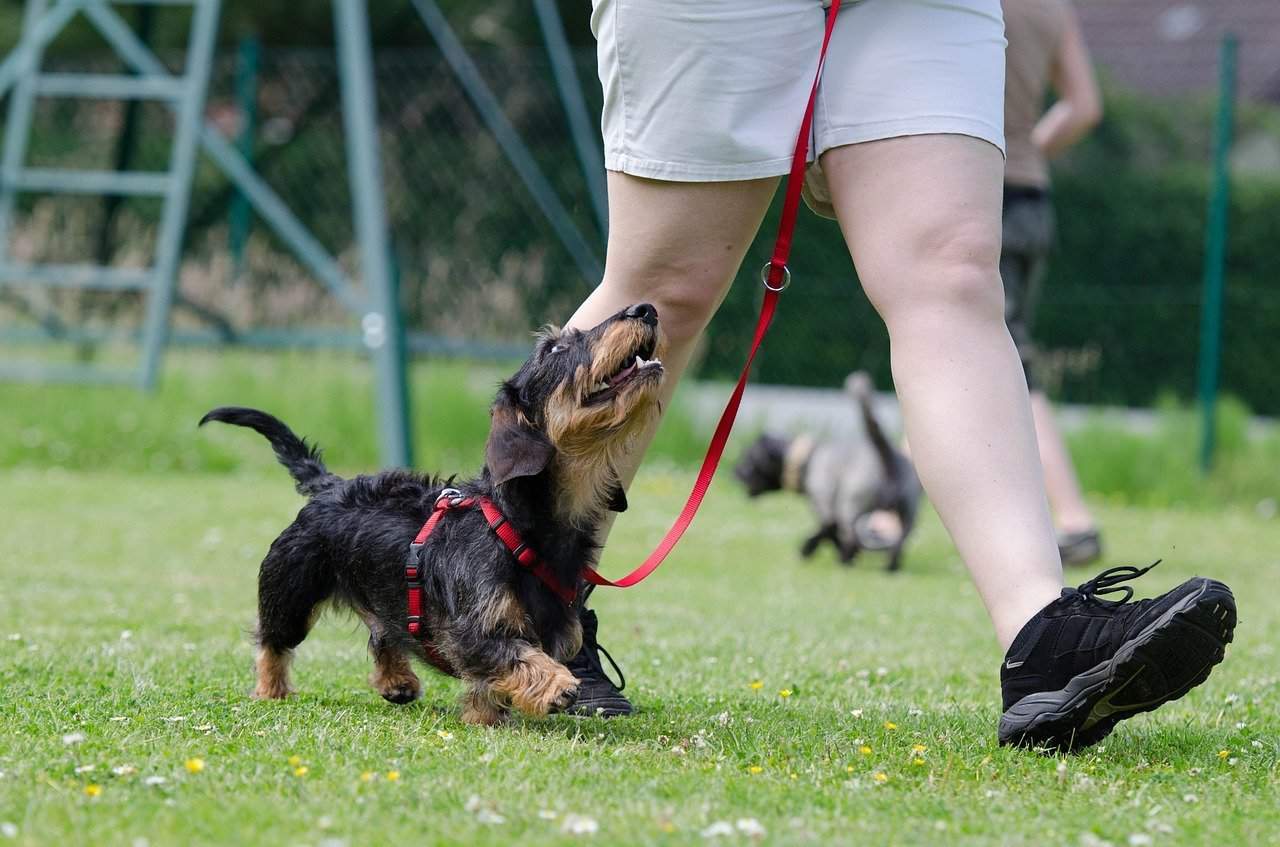Is disgusting view to see a dachshund eating poop. Technically known as coprophagia, is actually a very common phenomenon.
Though we may find it gross, the habit does have an underlying cause. If left unaddressed on time and appropriately, it does have a great chance of becoming a lasting forever habit.
The possible reasons why some of our canine companions find poop a delicacy vary an extensive spectrum from medical to behavior in nature.
While poop eating may be something as complex as diabetes, it can actually be something simpler, like for attention, to avoid punishment, or even out of boredom.
If you have a stool eater, do not despair. In this piece, we have outlined reasons why dachshunds eat poop and ways to discourage the distasteful practice.
Continue reading!
Why do some dogs eat stool?
Behavioral causes
In most cases, dogs begin to eat dung due to some kind of behavioral triggers or environmental stress, including:
· Attention seeking
Your four-legged companion loves you and wants your attention. If it is feeling a little bit ignored, it can eat poop just to get your attention, which it inevitably will.
This means that if you see your dachshund eating poop, don’t overreact.
· Boredom
Studies have shown that pooches who are left alone for a long time may find poop eating a new way of entertaining themselves and getting a treat in the process.
· Fear, stress, and anxiety
A dog under a considerable deal of fear, stress, or anxiety may eat poop as a self-soothing mechanism.
· Punishment
If a dachshund is punished for any action related to poop, it may begin to think stool is bad and remove or eat the evidence to avoid punishment.
· Cleanliness
There is one essential time that pooch will eat poop, and it is much in the natural order of things. A female doggy cleans up her puppies’ stool to keep their nest clean.
The drive for cleanliness could account for other canines, which clean up poop.
· Scavengers
Dachshunds aren’t repulsed by stool as we humans. They are natural scavengers, which are enticed to scent.
So, if the chance presents itself, dogs might take it.
· Puppies
Just like children, puppies get curious about their surroundings and may take a nibble out of some stool as part of their exploration process.
They normally grow out of this.
Additionally, a young dachshund can learn the habit of an older canine, which has acquired a taste for feces.
It is good to ensure and nip the issue in the bud.
· Puppy mills
Puppy mill pooches may be at considerable risk of developing poop-eating habits due to the conditions they are raised in — for instance, long-term crating and lack of food.
Medical reasons
If your adult four-legged friend begins to dine on poop, consult with a vet to rule out such health issues as:
• Drugs, like steroids
• Malabsorption syndromes
Any condition that may result in poor nutrient absorption can, in turn, result in poop eating. This may also make your dog find a cat’s dung even more exciting.
It is vital to consider whose poop the dachshund is seeking, as it can be an indicator of an illness or deficiency in that charming pet.
· Intestinal parasites
Worms and internal parasites can absorb the nutrients the pooch should be getting from its food.
Therefore, causing it to supplement its diet with whatever thing it can find, which appears remotely consumable.
· Diabetes, thyroid disease, Cushing’s, among other conditions
These might cause an enhance in appetite.
Certain diseases, such as thyroid issues and diabetes, can make your dog ravenous enough to eat poop.
· Diets are deficient in calories and nutrients
Make sure you’re feeding your canine friend enough food at constant times. A hungry dachshund will look for other sources of food you may dislike.
If you have a puppy, feed it two to four times a day as he is growing.
In case you have a question regarding how often or how much you should feed the puppy, consult your veteran.
· Exocrine pancreatic insufficiency
Also referred to as pancreatic insufficiency is a condition where a pooch is creating no or little digestive enzymes in his pancreas.
Without extra enzymes, your canine buddy will slowly starve and have symptoms such as stool eating, diarrhea, and weight loss because he is trying to get the much-required nutrients.
· Enzyme deficiency
Dog food has changed completely over the years. In the wild, canines used to eat the whole prey, which would contain the correct amount of digestive enzymes needed.
Modern pooch diet mostly includes processed kibbles and packaged food full of excess carbohydrates and fillers that aren’t necessary for the canine.
Lack of appropriate digestive enzymes makes it hard for your four-legged companion to absorb nutrients completely.
Naturally, the dog begins cravings towards the nutrient-rich dung.
Other deficiencies
Roger DeHaan, DVM, confirms that a hydrochloric acid deficiency that may happen from a bad diet or with age can result in poor digestion and, in turn, result in a search for nutrients in poop.
Hydrochloric acid usually breaks down protein during its digestive process.
Nutritional deficiency in the canine’s food can be a good reason for him to eat stool. Lack of essential vitamins like B12 can cause this habit, as well.
How to stop a dachshund from eating poop. Go Here
Coprophagy is probably more worrying to dachshund owners than it is dangerously harmful to dachshund dogs.
Your first step is to rule out the medical reasons for the habit by contacting a vet before initiating ways to stop your dachshund from eating poop.
Dachshund owners and veterinarians have seen a significant improvement with the below strategies.
Taste-aversion products
Certain smells and tastes are as repulsive to dachshund as the idea of poop eating are to humans, and spraying certain substances on the stool will make it less likable.
Many dog owners suggest remedies like adding pineapple and Zucchini to diets.
Some remedies include spraying lemon juice, hot source, and chili powder on the stool to make it unappealing to eat.
Unfortunately, the success of such methods is individual to each dog.
· The ideal form of diet
The ideal diet includes foods that contain the necessary nutrients in the appropriate quantity and quality.
Today, dogs are usually fed with foods that are low in digestible nutrients (processed kibbles), which contain high amounts of carbohydrates that are actually non-essential for your dachshund.
Carbohydrates are hard for a canine to digest and can pass through the poops on a partly digested form.
In such cases, the dog’s poop tastes much like the food he ate.
Switching towards processes kibbles with high protein connect may help solve this habit.
In addition, its always good to feed your dog with homemade cooked foods that are moderate in fats, low in carbohydrates, and high in proteins.
Effective training
Perhaps the perfect method to stop the issue is through effective training. Work extra hard on the commands ‘no,’ ‘come,’ and ‘leave it.’
Whenever the dog holds unwanted things in his mouth, you just say the command ‘leave it’ or ‘No,’ and it leaves immediately.
Gary Landsberg, DVM, DACVB, and Debra Horwitz, DVM, DACVB suggested that teaching your four-legged friend to come to you for a treat once he is eliminated, is a simple exercise that will help your dachshund develop a practice to run towards you for a delicious tidbit.
It might be a little challenging in the beginning, but with patience, the dog stops going towards the stool and will get habituated.
Environmental management methods
1. Add necessary minerals and vitamin B to your dachshund’s diet.
2. Add probiotics to better your dachshund’s gut health.
3. Lack of essential digestive enzymes may cause stool eating behavior. Therefore, adding necessary digestive enzymes to better nutrient absorption will definitely help.
4. Keep your dog’s yard clean, so there will be no feces for him to eat up.
5. Supervise your dachshund on walks, and always pick up it immediately.
6. A deficiency in hydrochloric acid can sometimes cause coprophagia. Hence adding unfiltered raw apple cider vinegar to his diet can help.
7. Cat owners should try to keep the litter box clean.
Final verdict
With a healthy balanced diet, little patience, proper training, your canine companion can eliminate poop eating behavior.
Keep in mind that punishments don’t work, and it only enhances the fear of punishment in the dog.
The fear then increases the issue of stool eating as the dachshund tries to get rid of the evidence.


